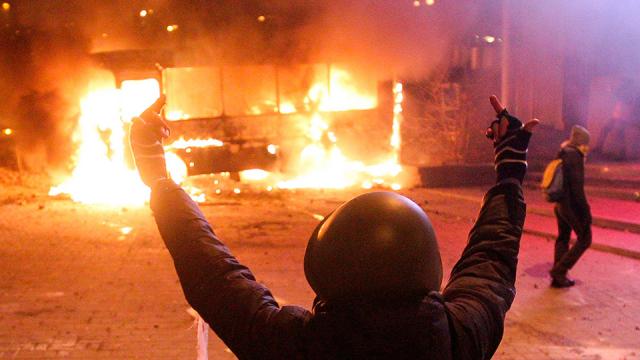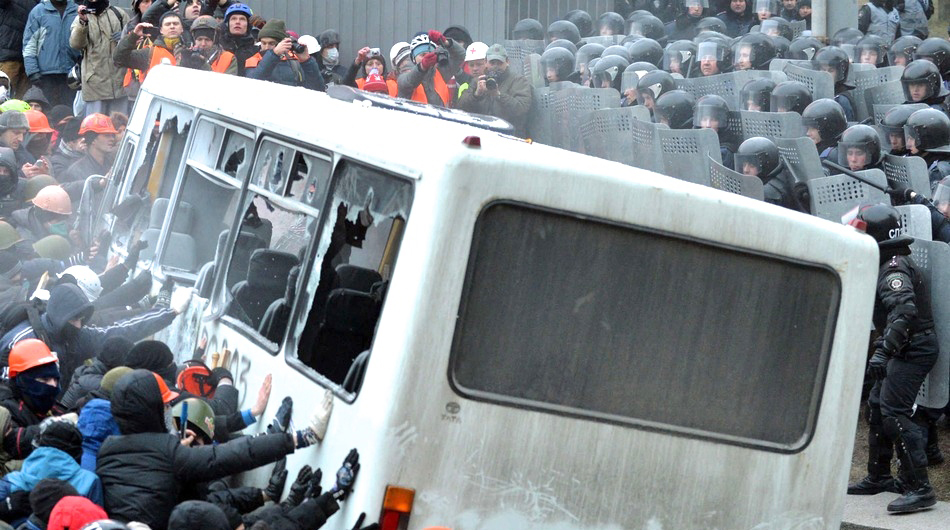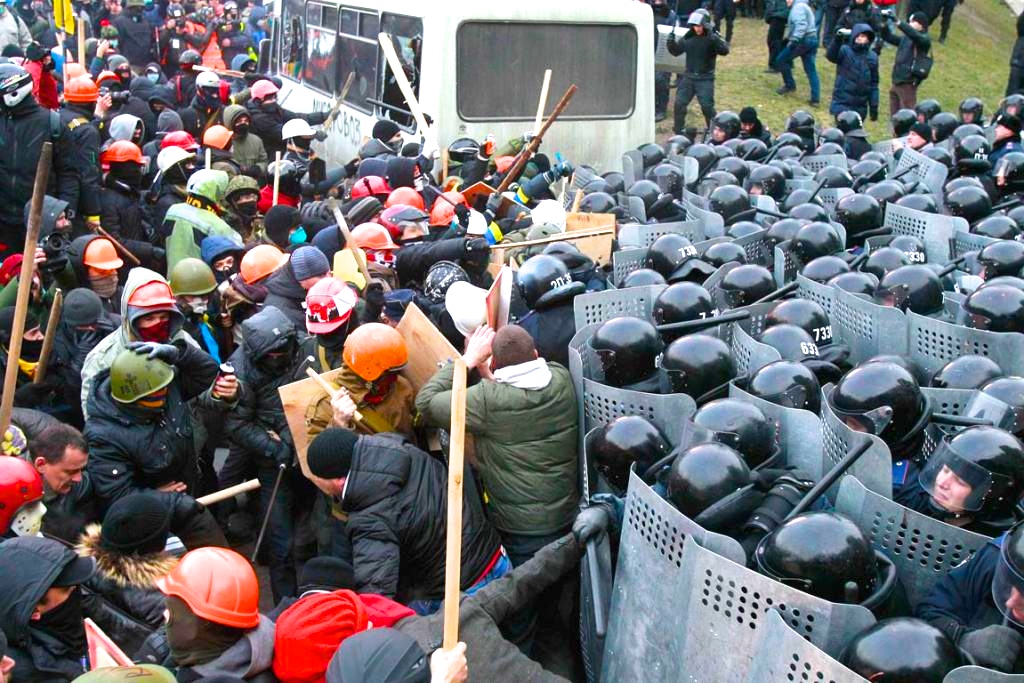
Ukrainian protesters and police have clashed in Kiev for a second consecutive day on Monday as a way out of the political crisis gripping the country looked further away than ever.
The mainly peaceful protests that have paralyzed the city for two months erupted spectacularly into violence on Sunday evening, with pitched battles between riot police and protesters, and numerous vehicles set on fire.
More than 100 protesters were injured and 42 taken to hospital, including a man who lost his hand when a sound grenade exploded. The police said 100 officers were hurt, with 61 needing hospital treatment. They said there had been 20 arrests.
On Monday, the square outside the Dynamo Kiev football stadium was a scene of devastation, littered with cobblestones that had been used as weapons by the protesters and the debris of the sound and gas grenades and rubber bullets that were used by the police.
The prosecutor general, Viktor Pshonka, issued a video address blaming the opposition for provoking the clashes and demanding that it call supporters off the streets
"The things that we see today are the direct result of two months of rhetoric from irresponsible politicians, and their populist promises that crimes will not be punished," he said. "This is not just hooliganism. This is a crime against the state."
Meanwhile, opposition leaders blamed the government for the violence. "Things that have never happened in Ukraine since independence occurred here … we had warfare in the centre of the capital," said former heavyweight boxing champion and opposition leader Vitali Klitschko. "It is the authorities that brought us to this."
Klitschko met President Viktor Yanukovych on Sunday night, and said he had agreed to negotiations with the opposition. But on Monday, Yanukovych nominated an aide to take part in the talks rather than pledging to attend personally.
Klitschko has warned that the country risks drifting towards civil war, and told Yanukovych not to "repeat the fate of Ceausescu and Gaddafi," referring to the Romanian and Libyan dictators killed by mobs during popular uprisings.
Initially there was anger inside the main protest camp on Independence Square at "provocateurs" causing the violence, but many quickly began to support those clashing with police, frustrated with the lack of progress since the beginning of the protests.
Standing by the tent where he has lived for several weeks, Marian Chova, a 20-year-old student from the western city of Lviv, said: "Yanukovych wasn't willing to negotiate with us, regardless of two months of the rally."
Oleksiy, a member of the self-organized defense unit that is guarding Independence Square, said: "Initially only the provocateurs were fighting there, but now everyone is with them. It's too late to draw back."
On Monday during the day, dozens of activists approached police cordons, hiding behind the charred carcasses of police buses and hurling molotov cocktails at the lines of riot police. Thousands watched the scene, mostly expressing support for the radicals.
"I'm very proud of our youth, who stood up at last for a free Ukraine and for a normal life," said 75-year-old pensioner Liubov Ivanivna, who was wearing a paper mask on her face and a saucepan on her head, to mock the recent anti-protest laws, which ban the wearing of helmets during rallies.
Yanukovych signed an array of laws last week that severely curtail media rights and regulations on public gatherings, in an attempt to curb the protests that broke out when he abandoned a European integration pact two months ago. The new laws have had the opposite effect, radicalizing the protest.
On Monday, Sweden's foreign minister, Carl Bildt, on Monday called the new legislation "the most solid package of repressive laws that I have seen enacted by a European parliament for decades."
The European Union has called on Ukraine to repeal the laws.
3 WAYS TO SHOW YOUR SUPPORT
- Log in to post comments













